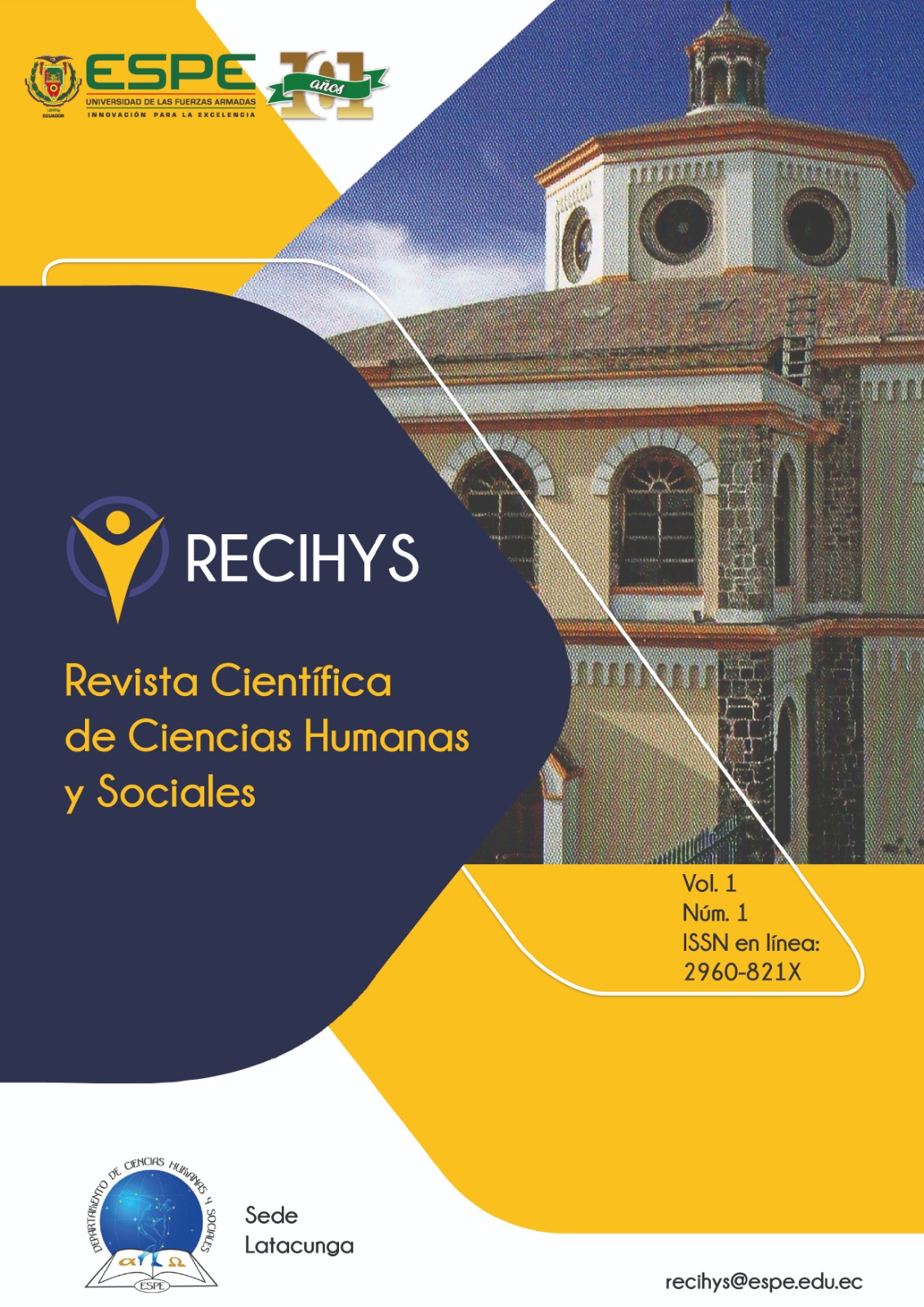Competency-Based Approach in Higher Education: A Pathway to Holistic Student Development and Professional Success
Main Article Content
Abstract
The research focused on the preponderance of labor competencies in higher education and their impact on the professional development of university students. To achieve this objective, a bibliographic review was carried out with novel contributions and the documentary approach was used as a methodology, applying a type of descriptive research and consulting various scientific documents.
The results obtained demonstrated the key importance of labor competencies in the comprehensive training of students in higher education; The same ones that refer to the combination of knowledge, skills, attitudes and values that a student must possess to perform effectively and successfully in their professional and personal life.
Downloads
Article Details

This work is licensed under a Creative Commons Attribution-NonCommercial-NoDerivatives 4.0 International License.
Authors who publish in this journal agree to the following terms: Authors retain the copyright and guarantee the journal the right to be the first publication of the work, as well as, licensed under a Creative Commons Attribution License that allows others share the work with an acknowledgment of the authorship of the work and the initial publication in this journal. Authors may separately establish additional agreements for the non-exclusive distribution of the version of the work published in the journal (for example, placing it in an institutional repository or publishing it in a book), with acknowledgment of its initial publication in this journal. Authors are allowed and encouraged to disseminate their work electronically (for example, in institutional repositories or on their own website) before and during the submission process, as it may lead to productive exchanges as well as further citation earliest and oldest of published works.
How to Cite
References
Álvarez, R., y González, A. (2019). Competencias socioemocionales en estudiantes universitarios: un estudio de caso en una universidad mexicana. Revista de Investigación en Educación Superior, 8(16), 1-15.
Arbaiza, S. (2018). Metodología de la investigación científica. Editorial Digital del Tecnológico de Monterrey.
Arias, F. (2016). El proyecto de investigación: introducción a la metodología científica. Editorial Episteme.
Banco Interamericano de Desarrollo. (2021). Competencias laborales: claves para la formación técnica y profesional en América Latina y el Caribe. https://publications.iadb.org/publications/spanish/document/Competencias-Laborales-Claves-para-la-Formacion-Tecnica-y-Profesional-en-America-Latina-y-el-Caribe.pdf
Bisquerra, R., & García, E. (2018). Competencias emocionales y bienestar personal en estudiantes universitarios. Revista de Investigación Académica, 22, 1-16.
Bisquerra, R., & García, E. (2018). Educación emocional y competencias básicas para la vida. Octaedro.
Bolívar, A. (2017). La praxis educativa: ¿un modelo superador de la práctica pedagógica? REICE. Revista Iberoamericana sobre Calidad, Eficacia y Cambio en Educación, 15(1), 9-22.
Cejas, D, Mendoza, M, Navarro, J, Villacis, R, Ortega, F, (2019). A PerformanceCentred Competency-Based Approach to Quality University Teaching. Revista ИНТЕГРАЦИЯ ОБРАЗОВАНИЯ. Vol. 23, № 3. ISSN 1991-9468 (Print), 2308-1058 (Online)
Cejas, M. (2017). Metodología de la Investigación en Educación Superior. Editorial Científico Técnica.
Cejas, M. Magda F., Vásquez, Galo R., Chirinos, Nilda I. (2017). Administración de Recursos Humanos, la arquitectura estratégica. http://repositorio.espe.edu.ec/bitstream/21000/13757/1/978-9942-765-04-
Cejas, Magda F. , Mendoza, V. Derling J., Alban Y. Carlos G. & Frias, Edisson (2020) Caracterización Del Perfil De Las Competencias Laborales En El Docente Universitario www.revistaorbis.org.ve / núm 45 (año 15) 23-37
EHEA. (2012). Standards and guidelines for quality assurance in the European Higher Education Area. European Association for Quality Assurance in Higher Education.
Gardner, H., & López, S. J. (2010). Las cinco mentes del futuro. Paidós.
Gimeno, Sacristán (2017). Educar por Competencias. ¿qué hay de nuevo? Ediciones Morata.
Goleman, D. (2017). Al liderazgo al estilo Dalai Lama. Urano.
Goleman, D. (2017). Inteligencia emocional: Por qué es más importante que el cociente intelectual. B de Bolsillo.
González, J., Wagenaar, R., & de la Villa, M. (2003). Tuning Educational Structures in Europe: Final Report. Universidad de Deusto.
González, L. (2017). La investigación documental como estrategia para la construcción del conocimiento. Revista Científica Visión de Futuro, 21(1), 127-136. https://doi.org/10.22490/21456453.2082
González, M. C., & Lagunar, M. C. (2017). La formación por competencias en el EEES: Enfoques y propuestas. Ediciones Pirámide.
Hernández Barraza, Y. (2017). Competencias transversales: una necesidad educativa en el siglo XXI. Revista Científica de Educación y Desarrollo, 3(1), 50-61.
Hernández Barraza, Y. (2017). La inteligencia emocional y su relación con el rendimiento académico. Revista Electrónica Educare, 21(2), 1-19.
Hernández, M., y Fernández, J. (2020). Evaluación de competencias en el proceso de formación universitaria. Revista de Educación Superior, 49(4), 1-20.
Lacomba, J. A. (2020). Tecnología educativa y competencias transferibles. Revista de Innovación Educativa, 10(2), 1-13.
Le Boterf, G. (2018). Repenser la compétence: pour dépasser les idées reçues. Éditions d'Organisation.
Montalvo, M., y León, L. (2021). Competencias digitales en la formación universitaria: una revisión sistemática de la literatura. Revista de Investigación Académica, 32(2), 78-93.
Perrenoud, P. (2004). Desarrollar competencias o enseñar saberes. ¿Qué hay que enseñar? ¿Qué hay que aprender? Morata.
Ramírez, L., y González, E. (2023). Competencias emocionales en el ámbito universitario: un estudio exploratorio. Revista de Investigación en Educación Superior, 12(24), 1-17.
Rodríguez, M., y García, F. (2022). Competencias transversales en el contexto universitario: un análisis de las perspectivas docentes. Educación Superior y Sociedad, 25(1), 123-139.

